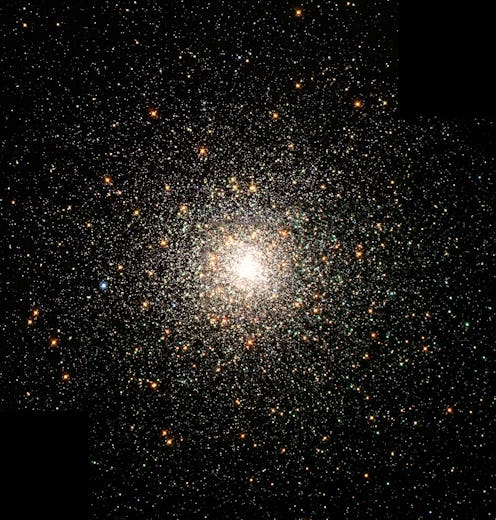Life
Life Might Not Have Originated On Earth After All, According To Scientists
Scientists, researchers, and leaders of various fields have long debated how life began on planet earth; and now, we've got a new theory to add to the list: interstellar dust transported micro-organisms to earth and created life. To make it even more exciting, there's a possibility the dust that created us was transported from Mars. Well, that explains everything.
The study comes from the University of Edinburgh and was led by Professor Arjun Berera. Their research says that life originally started on our planet because of hypervelocity space dust, which can move as fast as 70km per hour and is constantly hitting earth. This dust was carrying bacteria and micro-animals, which then created life on earth. This means that human life is technically alien life; it also means that life on earth could be carried to other planets.
If the whole theory sounds too outrageous, hold that thought, because this type of dusty space travel has already been spotted before. According to the European Space Agency, there is evidence that certain material in Saturn's rings originated on Enceladus — a nearby moon. Incredible? Of course. But it might be happening more than we think. In the study, Berera says, "The streaming of fast space dust is found throughout planetary systems and could be a common factor in proliferating life."
The study's findings were revealing, absolutely; but this wasn't the first time the concept was studied. Some studies have contemplated if the first organisms on the planet came from an astroid that hit us, or even possibly Mars. Yes, Mars! In fact, in 2013, biochemist Steven Benner said that life on earth absolutely could have started in the form of Martian organic compounds.
They don't pull these theories out of thin air, either; there's a reason for all of it. One big clue is boron and molybdenum — both of which are essential to life. Earth, which could have been all water at one point, would have had a hard time producing boron, says Benner. The same goes for molybdenum, which couldn't have been on this planet in the beginning because Earth had very little oxygen. Thus, boron and molybdenum had to have come from somewhere else. You know where they were available? Mars, which means...
We came from Mars!
Let's review: dust can carry organisms. Dust can carry water. While it's possible that dust from Mars helped kickstart life on earth, what about life on Mars? Scientists have indeed found dust hovering around Mars; but there's a big "but."
Mars has pretty much never had a magnetic field, meaning that its atmosphere and water have been lost in space. If there's no water, there's no life. If there's no atmosphere, there's no protection from UV light and other types of radiation. Little organic molecules wouldn't stand a chance. For these reasons, the odds of dust creating life on Mars today are slim to none. (Sorry to everyone hoping the ghost lady on Mars was real.)
There are still so many unanswered questions surrounding how life started on our beautiful planet earth. We do know that there is possible evidence of life in 4.1-billion-year-old zircons from Western Australia; and the earliest confirmed evidence for life came from 3.7-billion-year-old stromatolites in Greenland. So, we have the when; but science has yet to agree on the how. There are many theories about how life begin, and even theories exploring the possibility that life has started over on this planet multiple times before — meaning we aren't the first civilization to roam the land.
But whether life started because of lightning or clay or deep sea vents or under layers of thick ice (or another possibility entirely) remains to be seen.
